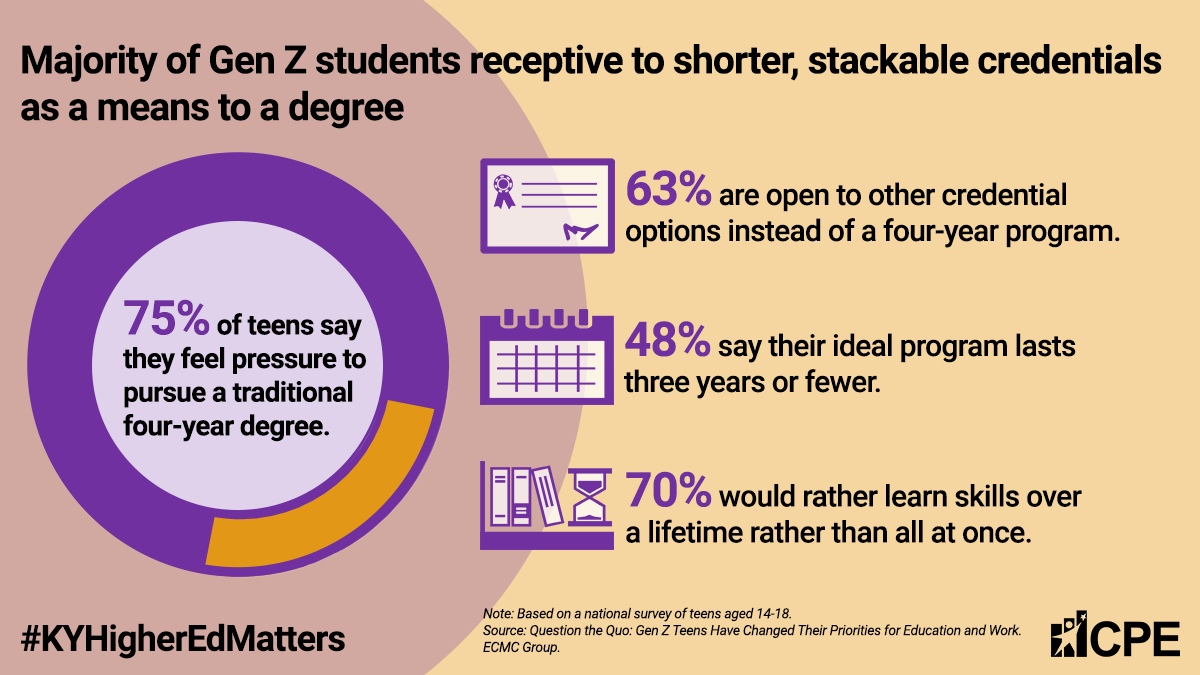A recent infographic released by the Council of Post-Secondary Education In Kentucky indicates that the majority of Generation Z feels pressured to pursue a traditional four-year degree and would rather explore other educational options that allow them to learn skills over a lifetime rather than all at once.
For those staff and faculty in traditional higher education, this begs the question as to the role that these individuals should have in supporting and developing these alternatives. For those embedded in the Cooperative Extension System this seems to be a logical method of providing educational content and could be an important pathway for Extension clientele seeking to enter the workforce in a more straightforward and direct manner. This approach could also be seen as competitive with the traditional four year degree.
As this approach is considered, there are several questions that come to mind:
- Can stackable credentials complement traditional educational pathways instead of replacing to avoid competition within the university system?
- What educational and career pathways are supported through stackable credentials?
- Are employers open and supportive to hiring potential employees with education from a credentialing pathway versus a traditional pathway in education?
- How can offering stackable credentials be a revenue generating effort in a manner that parallels (but does not supersede) courses at a traditional university/college?
It seems that there is immense potential for the this area in educating today's youth and preparing them for financial success. There also needs to be careful consideration on how these programs are offered so that they are supporting and building on the work of traditional educational pathway rather than undermining or eliminating them.
For readers, what other considerations, questions, and challenges come to mind regarding offering alternative educational credentials to graduating students?

Comments (0)